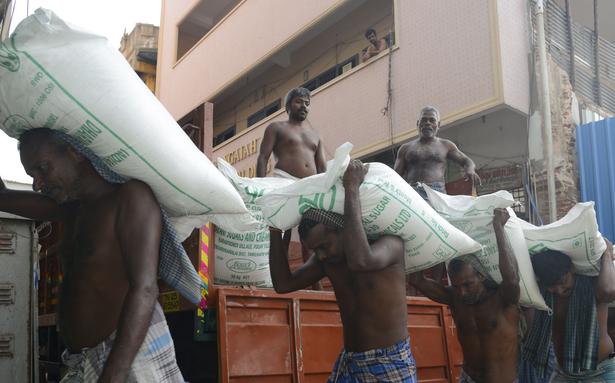India plans to restrict sugar exports for the first time in six years to prevent domestic prices from rising and could limit exports to 8 million tonnes this season, government and industry sources told Reuters.
An announcement could come early next month, they said.
Sugar maker shares slid on the news, with Dhampur Sugar Mills and Balrampur Chini each falling 5% and Dwarikesh Sugar 6%.
“Sugar production will hit a record high, but stocks are running out fast due to exports. Uncontrolled exports could lead to shortages and local prices could skyrocket during the holiday season,” said a senior government official with knowledge of the matter, who asked that it not be identified.
Two of three sources said the government was planning a cap of 8 million, while one official said the government was also exploring the option of a levy on exports to discourage overseas sales.
India’s Department of Trade and Industry did not immediately respond to a request for comment.
A cap of 8 million tonnes for the marketing year through the end of September could result in a de facto export ban from May, as mills have already contracted to export 7 million tonnes so far, according to traders.
Based on March contracts for about 1 million tonnes of exports, they estimate mills could sign deals for another 1 million tonnes in April after global white sugar prices rose to a 5-year high on Thursday.
Lower production in top producer Brazil and firm oil prices encouraging mills to produce more sugar cane-based ethanol have pushed global prices higher. Export restrictions by India, the world’s second-largest sugar exporter, would likely raise prices further.
Earlier forecasts estimated that domestic sugar inventories could fall to a five-year low of 6.8 million tons on Oct. 1 on record exports, but those forecasts now look optimistic following the surge in global sugar prices.
“New Delhi is keen to start the new season with an opening stock of 6-7 million tonnes, which is enough to meet demand in the December quarter,” an industry official said.
Demand usually increases in the December quarter due to weddings and festivals like Diwali and Dussehra.
Any restrictions on sugar exports would be the first since India introduced a 20% tax in 2016 and would mark a reversal for a government that until last year gave subsidies to mills struggling to make sugar cane payments to farmers due to record stockpiles.
But record exports of more than 14 million tonnes over two years mean New Delhi’s priorities have shifted to producing enough sugar to meet local demand.
“Government policy is clear. Produce enough sugar to meet local demand and make as much ethanol as possible from the remaining excess sugar cane. Don’t rely on exports as global prices are volatile,” said one policymaker, who asked not to be named.
The government is also concerned about food inflation, of course, as prices of key commodities like cooking oils and grains soar in the wake of Russia’s invasion of Ukraine, a Mumbai-based trader for a global trading firm said.
In the past, the government has been embarrassed to import sugar at higher prices after exporting record volumes, the trader said, but added he didn’t think the government would be cautious about imports now if it really needed to.



